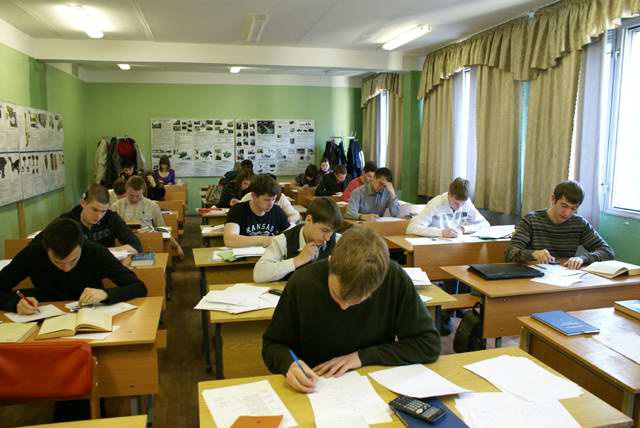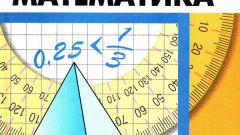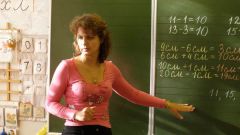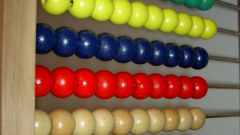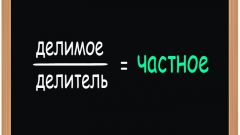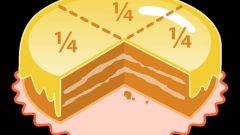Instruction
1
Condition 1. The novel caught on the river 2.4 kg bass. 4 pieces he gave it to my sister Lena, part 3 – brother Sergei, and one part left. How many kg of fish have got each of the kids?
Solution: Denote the mass of one particle by X (K), then the mass of three parts – 3X (kg), mass in four parts – 4 (kg). It is known that there were 2.4 kg, we set up and solve the equation:
X + 3X + 4X =2,4
8X = 2,4
X = 0,3 (kg) bass was a novel.
1) 3*0,3 = 0,9 (kg) – fish gave Sergei.
2) 4*0,3 = 1,2 (kg) – bass got a sister Lena.
Answer: 1.2 kg, 0.9 kg, 0.3 kg.
Solution: Denote the mass of one particle by X (K), then the mass of three parts – 3X (kg), mass in four parts – 4 (kg). It is known that there were 2.4 kg, we set up and solve the equation:
X + 3X + 4X =2,4
8X = 2,4
X = 0,3 (kg) bass was a novel.
1) 3*0,3 = 0,9 (kg) – fish gave Sergei.
2) 4*0,3 = 1,2 (kg) – bass got a sister Lena.
Answer: 1.2 kg, 0.9 kg, 0.3 kg.
2
The next version will also look at the example:
Condition 2. To prepare the pear compote need water, pear and sugar, the weight of which should be proportional to the numbers 4,3, and 2 respectively. How much should you take of each component ( by weight) to prepare 13.5 kg of juice?
Solution: Let for cooking stewed fruit requires a (kg) water b (kg) pears, c (kg) of sugar.
Then a/4=b/3=C/2. Take each of the relations for x. Then a/4=X, b/3=X/2 = X. it follows that a = 4X, b = 3X, c = 2X.
According to the problem, a + b + c =13,5 (kg). From this it follows that
4 + 3 + 2 =13,5
9X = 13.5 cm
X = 1,5
1) 4*1,5 = 6 (kg) water;
2) 3*1,5 = 4,5 kg – pears;
3) 2*1,5 = 3 (kg) – sugar.
Answer: 6, 4.5 and 3 kg.
Condition 2. To prepare the pear compote need water, pear and sugar, the weight of which should be proportional to the numbers 4,3, and 2 respectively. How much should you take of each component ( by weight) to prepare 13.5 kg of juice?
Solution: Let for cooking stewed fruit requires a (kg) water b (kg) pears, c (kg) of sugar.
Then a/4=b/3=C/2. Take each of the relations for x. Then a/4=X, b/3=X/2 = X. it follows that a = 4X, b = 3X, c = 2X.
According to the problem, a + b + c =13,5 (kg). From this it follows that
4 + 3 + 2 =13,5
9X = 13.5 cm
X = 1,5
1) 4*1,5 = 6 (kg) water;
2) 3*1,5 = 4,5 kg – pears;
3) 2*1,5 = 3 (kg) – sugar.
Answer: 6, 4.5 and 3 kg.
3
The following type of decision task in part" - finding a fraction of the number and the number from the fraction. When solving problems of this type it is necessary to remember two rules:
1. To find a fraction of a certain number, this number multiplied by this fraction.
2. To find all the number for a given value of its fractions, the given value must be divided by a fraction.
For example, analyze such problems. Condition 3: Find the value of X if 3 / 5th of this number is 30.
Place the solution in the form of the equation:
In accordance with the rule, have
3/5X = 30
X = 30:3/5
X = 50.
1. To find a fraction of a certain number, this number multiplied by this fraction.
2. To find all the number for a given value of its fractions, the given value must be divided by a fraction.
For example, analyze such problems. Condition 3: Find the value of X if 3 / 5th of this number is 30.
Place the solution in the form of the equation:
In accordance with the rule, have
3/5X = 30
X = 30:3/5
X = 50.
4
Condition 4: Find the area of the garden, if you know that 0,7 dug up the entire garden, and left to dig 5400 m2?
Solution:
Take the whole garden for one (1). Then,
1). 1 – 0,7 = 0,3 – not dug up part of the garden;
2). 5400:0.3 mm = 18000(m2) is the area of the garden.
Response: 18000 m2.
Consider one more example.
Condition 5: the Traveler was in transit for 3 days. On the first day he прошел1/ 4 part of the way, the second – 5/9 the rest of the way, on the last day he walked the remaining 16 km away. you Must find all the way of the traveler.
Solution: Take the entire path for X (km). Then, on the first day he walked 1/ 4(km), the second – 5/9(X – 1/ 4) = 5/9*3/4X = 5/12X. Knowing that on the third day he walked 16 km, then:
1/4 + 5/12 + 16=X
1/4+5/12 X=-16
-1/3=-16
X=-16 :(-1/3)
X=48
Answer: the Entire path of the traveler is equal to 48 km.
Solution:
Take the whole garden for one (1). Then,
1). 1 – 0,7 = 0,3 – not dug up part of the garden;
2). 5400:0.3 mm = 18000(m2) is the area of the garden.
Response: 18000 m2.
Consider one more example.
Condition 5: the Traveler was in transit for 3 days. On the first day he прошел1/ 4 part of the way, the second – 5/9 the rest of the way, on the last day he walked the remaining 16 km away. you Must find all the way of the traveler.
Solution: Take the entire path for X (km). Then, on the first day he walked 1/ 4(km), the second – 5/9(X – 1/ 4) = 5/9*3/4X = 5/12X. Knowing that on the third day he walked 16 km, then:
1/4 + 5/12 + 16=X
1/4+5/12 X=-16
-1/3=-16
X=-16 :(-1/3)
X=48
Answer: the Entire path of the traveler is equal to 48 km.
5
Condition 6: Bought 60 buckets, with a 5-liter was 2 times more than 10 liter. How many parts have to 5литров bucket, a bucket of 10 liters, all the buckets? How many bought a 5 litre and 10 litre buckets?
Let buckets 10 litre is 1 part, then a 5 litre be 2 parts.
1) 1 + 2 = 3 (parts) — account for all buckets;
2) 60:3 = 20 (buckets.) — accounts for 1 piece;
3) 20·2 = 40 (buckets) — you have 2 part (five-liter bucket).
Let buckets 10 litre is 1 part, then a 5 litre be 2 parts.
1) 1 + 2 = 3 (parts) — account for all buckets;
2) 60:3 = 20 (buckets.) — accounts for 1 piece;
3) 20·2 = 40 (buckets) — you have 2 part (five-liter bucket).
6
Condition 7: homework (algebra, physics and geometry) Roma spent 90 minutes. In physics he spent 3/4 of that time spent on algebra and geometry for 10 minutes less than on physics. How much time Roma spent on each item separately.
Solution: Let x (min) spent on algebra. Then 3/4x (min) went to physics, and geometry elapsed (3/4x – 10) minutes.
Knowing that all the lessons he spent 90 minutes, we set up and solve the equation:
X+3/4x+3/4x-10=90
5/2=100
X=100:5/2
X=40 (min) – left on algebra;
3/4*40=30(min) - physics;
30-10=20 (min) - geometry.
Response: 40 min, 30 min,20 min.
Solution: Let x (min) spent on algebra. Then 3/4x (min) went to physics, and geometry elapsed (3/4x – 10) minutes.
Knowing that all the lessons he spent 90 minutes, we set up and solve the equation:
X+3/4x+3/4x-10=90
5/2=100
X=100:5/2
X=40 (min) – left on algebra;
3/4*40=30(min) - physics;
30-10=20 (min) - geometry.
Response: 40 min, 30 min,20 min.
Useful advice
When solving problems in part need to learn to take the suitable value for 1 piece. Learn how to find out how many parts you have on the other values, their sum or difference.
